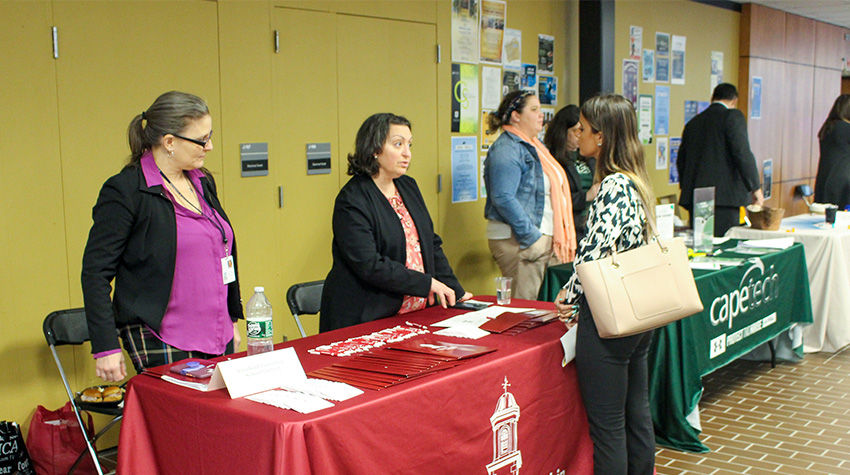Diversity as a Teacher
By Jeannie Pincus, ‚Äė23
Stockton alumna Jeannie Pincus believes having a diverse educator workforce is becoming an increasingly important part of the student experience in the classroom. She shared her insights in the this summer and with us for this issue of Celebrate Diversity below.
Diversity in the classroom is about embracing, acknowledging and welcoming all differences. This also includes diversity among teachers, support staff members and administrators. Having a diverse educator workforce is essential to positive outcomes for the diverse student populations in our schools.
Growing up Hispanic/Latin in a rural area where the majority of the area population was white had a tremendous impact on my decision to pursue a career in education. As a young Hispanic/Latin student, I did not have support from my teachers to pursue a career, let alone college.
I didn’t even have familiar faces that looked like mine. Anyone who looked like me worked in custodial or kitchen positions. I felt like I didn’t belong because I didn’t see any teachers who understood my cultural background. I was uncomfortable speaking in class when teachers called on me for fear of being laughed at because I had an accent.

Our 91 ”∆Ķ are looking for a sense of belonging, so let‚Äôs show our 91 ”∆Ķ they can see themselves in their teachers."
Because of my language barriers, I was placed in ESL to learn English. I was also forced to go into speech therapy to get rid of my accent, and my parents stopped speaking Spanish to me because they wanted me to become more ‚ÄúAmericanized.‚ÄĚ As I was completing high school, I noticed that minority 91 ”∆Ķ such as myself did not receive proper guidance for college preparation. We were left to figure out our futures alone.
Once I became an adult, it was imperative to me that I become an educator so 91 ”∆Ķ could see a familiar face in me. My Hispanic heritage is one of the representations our schools need. A multicultural environment should include teachers of diverse backgrounds. Our educational system should reflect our society, which is rich with a variety of cultures.
While we have more diversity among teachers in some urban areas, we need these talented teachers in every district. A diverse educator force helps 91 ”∆Ķ everywhere and should not be limited to specific school districts.
Minority teachers can be significant role models for our 91 ”∆Ķ. Students who identify with their teachers tend to perform better academically. Another positive impact minority teachers bring to our schools is they can help reduce discipline disparities because, with our common backgrounds, we are able to relate to our 91 ”∆Ķ with fewer biases.
The diversity gap is a challenge in our school system. We need to find ways to get more minority teachers in our schools. Our 91 ”∆Ķ are looking for a sense of belonging, so let‚Äôs show our 91 ”∆Ķ they can see themselves in their teachers.
91 ”∆Ķ the Contributor
Jeannie Pincus is a recent graduate from 91 ”∆Ķ. In addition to attending Rutgers University for her teaching certificate, Pincus is a first-grade teacher at Atlantic Christian School and the NJEA's Preservice Diversity & Justice co-chair.






After observing the state of education both in and out of New Jersey, Claudine Keenan, dean of the School of Education, wanted to share her insights on how beneficial teacher diversity is for all 91 ”∆Ķ.
A strong consensus among social science researchers supports the multiple ways that . National of public school enrollments suggest that our nation‚Äôs future 91 ”∆Ķ will continue to benefit from more diverse classmates through 2030.
However, these increasingly diverse high school graduates are pursuing education careers at uneven rates that are not equivalent to other careers that require a bachelor’s degree.
Other Related Articles


